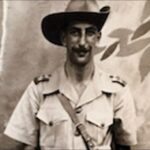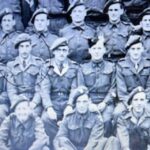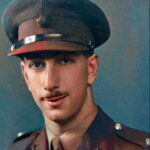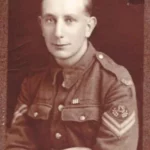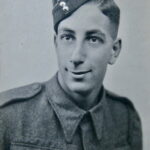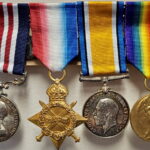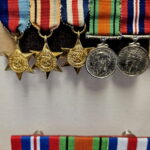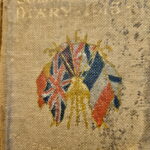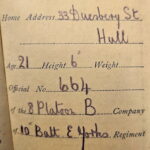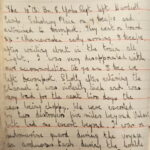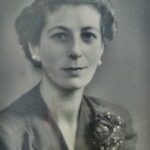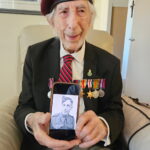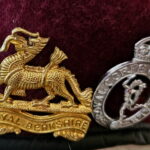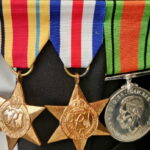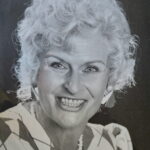Gordon Schottlander was born January 10, 1925 in London, England. He was the son of a Great War veteran; Gordon was an only child, and he grew up in good circumstances, attending boarding school in Brighton – his father was self-employed in the Great Depression years. Gordon’s father also had the foresight to move the family out of London: he anticipated that war was on the way – and that London would be bombed. When the war began Gordon’s school shut down, and that was the end of Gordon’s formal education. He joined the army when he was able, and he ended up as a signalman in the Royal Berkshire Regiment. Training ensued at the Isle of Man and in Scotland, and soon Gordon found himself dispatched to the Mediterranean Theatre, where he was stationed at the Mareth Line in Tunisia for a time, an action that earned him the Africa Star. From there he returned to England, and on June 6, 1944, Gordon set across the Channel, ready to take part in the D-day invasion. He landed at Juno Beach alongside forces of the 3rd Canadian Division. It was their task to move inland from there, in the direction of Caen. As they were moving the hedgerows a German mortar shell landed near Gordon, and he took heavy shrapnel in the leg – that was the end of the war for Gordon. He was evacuated and into a succession of hospitals at that point, and later sent to Northern Ireland, where he met his wife. Gordon finished his service in the Royal West African Frontier Force, based in Freetown. With that he returned to England, and he and his wife made the decision to emigrate to Canada, where they settled in southern Ontario. Gordon Schottlander was interviewed at his home in Burlington by Scott Masters and Zach Dunn in March 2025.
Videos
Click next video below to keep watching
